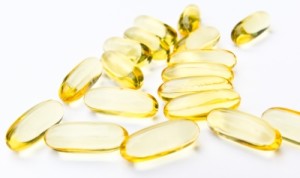By Abraham Safirstein
Let us explain how the body uses nutrients to influence gene expression.
What are genes?
Genes are to a cell what an operating system is to a computer. Every cell in our body has specific functions it can perform. There are over 20,000 genes that have been identified in every human cell. In order for a cell to carry out any given function, it must receive directions from the genes. Every gene has a unique receptor on the cell membrane that can allow the specific nutrients, hormones, molecules, etc needed to activate that gene.
In order to understand how genes affect cellular function, we can use the following analogy. Say you want to type the letter “a”. All you have to do is press that letter on the keyboard. However, if you want to type a capital “A”, in addition to pressing the “a” key, you have to hold down the Shift key. You can press the “a” key over and over until you grow old and gray, and you will never get a capital A unless you press the Shift key together with the “a”. Similarly, unless you switch on or off a particular gene, the function it controls will never happen.
Each individual gene has its unique receptor on the cell membrane which will attract the necessary nutrient for its activation. This works like a lock and key. You must use the correct key that fits in the lock in order to access and activate the gene. This means that if you are deficient in the nutrient necessary for that gene to be activated, the cell’s ability to perform that function will be impaired.
The following are some of the critical nutrients that are necessary for proper genetic activation in order to substantially reduce the incidence of cancer when present in adequate levels: Vitamin D, Vitamin K, Omega 3s and Iodine. Once cancer is present, there are additional chemicals and botanical extracts that are needed to overcome it and those are also included in my Program.
I can tell in which household there are going to be nutritionally related diseases by looking at people’s shopping carts at the supermarket checkout. Any time the bulk of the food is packaged it is a bad sign; any time the bulk of the food is in the form it comes in nature, it is a sign of health. We don’t have to complicate our life too much; it is an obvious reality that the closer to nature the food is, the healthier the people consuming it will be. The choice is obvious, once we decide to become healthy, there is a basic resolution that must be taken, which is to supply the body with the nutrients it requires in a natural way and supplement where necessary.
Contrary to what many in the mainstream medical establishment hold, we are not able to get all the nutrients we need from food alone. Examples abound:
Vitamin D: in order for the body to generate sufficient vitamin D, the whole body has to be exposed to the sun daily for 15-20 minutes between 11 and 2. That will create an oily film on the skin that will be reabsorbed at night in order for the body to create vitamin D. This kind of sun exposure is rare, and even then, if one takes a shower and dries off with a towel, the benefit is lost in the process. It is a fact that almost all people living in the city are vitamin D deficient, and this is found more acutely in people with cancer and depression. There are myriads of entries in medical literature asserting this, and I don’t understand why it is not being monitored on a regular basis the way, for example, cholesterol is monitored. In my mind, this is gross medical negligence and I would not trust a doctor that does not check vitamin D levels. Vitamin D deficiency is an important factor in many diseases including:
Cancer
Heart disease
Osteoporosis
Depression
MS
Diabetes
IBS
Infertility
Infections
Autism spectrum disorders
ADD/ADHD
Vitamin K: Is found mostly in green leafy vegetables, cruciferous vegetables (broccoli, cauliflower, etc.), and cottage cheese. The chances that people eat enough of these are very slim. Vitamin K deficiency can cause, among others:
Cancer
Osteoporosis
Heart disease
MS
Rheumatoid arthritis
Omega 3: An essential fatty acid found mainly in fish and flax seed oil. It is needed mainly for the cellular membranes and for the myelin sheath insulation of nerves. The proper proportion of essential fatty acids is 50% omega 3 to 50% omega 6 + omega 9. Nowadays, the general proportion is 5 to 10% omega 3 to 90-95% omega 6 + 9. Omega 3 deficiency is found in:
Cancer
Heart disease
Diabetes
Depression and mental disorders
ADD/ADHD
Autism spectrum disorders
Iodine: An essential mineral needed for the production of thyroid hormone and prevention of cancer. It is found in sea weeds. Iodine deficiency is found in:
Hypothyroidism
Hyperthyroidism
Cancer
Diabetes
Obesity
Developmental delays and disorders
The same principle holds for most other essential nutrients, and unless they are supplied through our diet, they must be supplied in supplement form.
There are other foods, though, that promote and assist cancer, and it is our choice to reduce or eliminate them from our diet. I picture it like having a platoon of Special Forces defending me from a very powerful enemy –cancer-, who is continuously shooting at me trying to kill me. The least I can do for them is to supply them with the ammunition they need to continue killing the enemy. Now let’s say the enemy stops shooting. I scream: “Hey, why did you stop shooting?” –“I ran out of ammunition…” “No problem” I say, “here is a new box of bullets for you so you can keep shooting at me…”
Sounds silly? This is exactly what we are doing when cancer patients continue to consume refined sugar, HFCS (high fructose corn syrup), artificial sweeteners, refined grains, trans fatty acids, GMOs, food coloring, and so on. They can be easily substituted by dried sugar cane juice, whole grains, natural oils like olive, flax seed and coconut oil. Refined oils, by the way, even canola oil, are denaturalized and should not be consumed. Needless to say, it is important to drink 6-8 glasses of water daily.
Nutritional Chemoprevention and Chemotherapy
As explained above, scientists have demonstrated that cancer can be prevented and reversed without resorting to the use of dangerous poisons and radiation. This is what we call chemoprevention. It entails using specific nutrients to activate the appropriate genes necessary to ward off cancer, such as the tumor suppressor p53 gene and the p27Kip1 cell-cycle inhibitor. Chemoprevention should be able to eliminate pre-malignant cells, block the progression of normal cells into invasive tumors, and ultimately stop a cancer before it ever reaches a size that could cause symptoms or be detected.
The same principles of chemoprevention can be used to assist the immune system to destroy cancer cells. However, once tumors have developed, there is a need to use more powerful means to win the war. What we need is what we can call a Natural Chemotherapy. (As a matter of fact, there are many effective natural therapies out there which are referred to in conventional medical literature. The problem is that nowadays in order to be able to obtain approval for a medicine or treatment it has to be proven through clinical trials, which cost hundreds of millions of dollars. Unless it can be patented, nobody will invest money because people will be able to buy the therapy in the corner health food store and the investors will be left holding the bag.)



